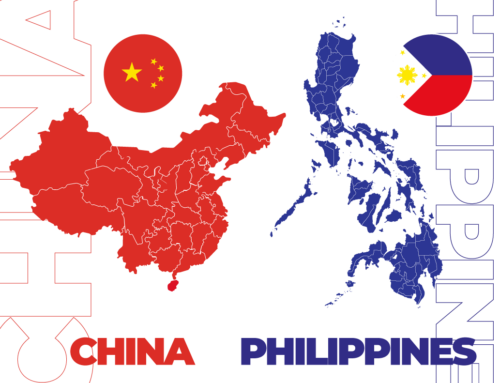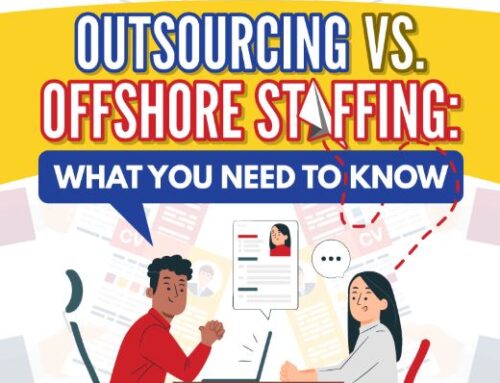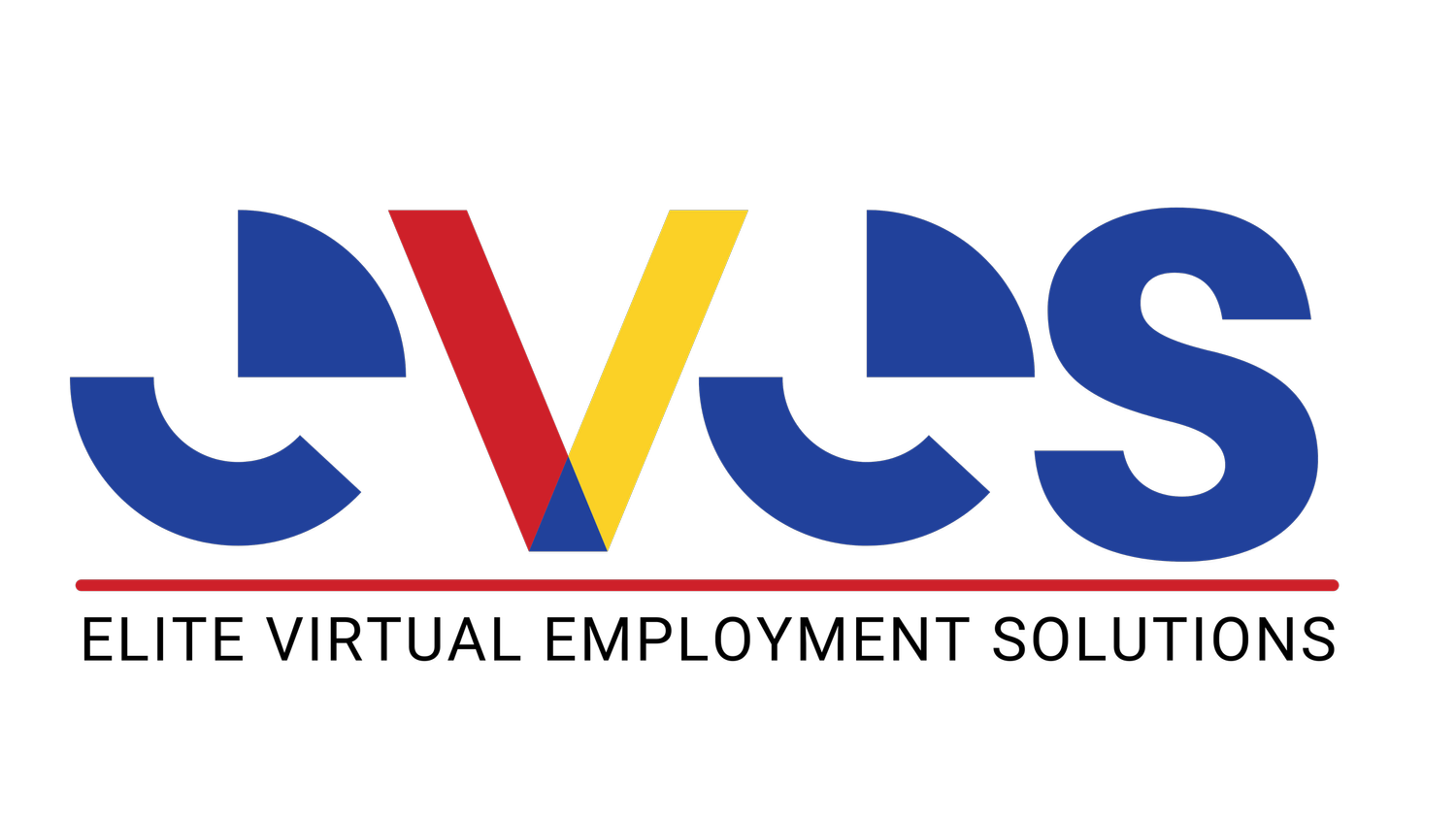Small business owners face various challenges when competing against big companies with vast resources at their disposal. One particularly difficult challenge is recruiting quality talent for hard-to-fill open positions, at rates affordable to a small business.
Thanks to globalization though, there’s now a way to level the playing field for small business owners. How? Offshore recruitment.
Think of offshore recruitment as expanding the labor pool you can source talent from, by eliminating geographic boundaries. Offshore recruitment lets you tap into a diverse and highly skilled global talent pipeline outside your country at much lower labor rates. It’s a smart, strategic approach to mitigating labor shortages, significantly lowering employee compensation baselines, and reducing overhead costs.
If you’re looking to give your small business a competitive edge, exploring this game-changing approach can unlock new opportunities for growth.
How Does Offshore Recruitment Work?
Offshore recruitment is the practice of sourcing and hiring individuals or teams from another country like the Philippines. It can be done through various methods, such as direct hiring or working with an offshore company.
Direct hiring involves no intermediaries. This method gives companies full control over the recruitment process, from posting job offers to onboarding new hires.
Offshoring companies in the Philippines act as intermediaries to help in finding & hiring the right candidate for offshore roles. They specialize in sourcing, evaluating, and managing offshore talent, and have the network and resources to streamline the hiring process.
Offshore employees work remotely for the company from either their home workspace, or a shared office space managed by an offshore company.
Offshore staff adhere to the company’s policies, procedures, and performance standards, just like their onshore counterparts. Depending on their roles and the nature of their work, offshore employees may work independently or as part of cross-functional teams.
Offshore employees are integrated into the company’s operations and teams using various communication and collaboration tools. These typically include:
- Video conferencing
- Instant messaging
- Project management software
Here is a summary of how offshore recruitment differs from traditional recruitment:
- Location of Talent: Talent from a different country or continent.
- Cost: Often as much as 70% lower labor costs & up to 50% less overhead.
- Time Zone Alignment: This may involve significant time zone differences, but many offshore staff can also work US hours.
- Legal and Compliance: Must comply with international employment laws and local laws of the offshore location.
- Recruitment Process: Often involves partnering with offshore companies.
- Onboarding and Training: Requires remote onboarding and training methods.
- Management and Supervision: Requires effective remote management tools and strategies
- Employee Engagement: Relies on virtual communication and engagement methods.
- Technology and Infrastructure: It may require additional investment in communication and collaboration tools for remote working.
- Flexibility and Scalability: Higher flexibility in scaling up or down due to a wider talent pool and varying cost structures.
Offshore Recruitment Vs. Outsourcing
Offshore recruitment involves hiring remote employees and integrating them into the company’s operations. The offshore employees are subject to the same policies, procedures, and performance standards as the onshore employees. They are the company’s employees, albeit from different locations.
On the other hand, outsourcing involves contracting third-party providers to handle specific tasks or projects on behalf of the company. The third-party outsourcing provider manages its workforce and resources independently. Therefore, companies have limited control over the daily operations and management of outsourced tasks.
Role of Offshore Recruitment Agency
Offshore recruitment agencies simplify and streamline the entire hiring process for companies looking to recruit internationally. They handle the heavy lifting of recruitment to allow businesses to focus on integrating new hires into their teams.
The offshore recruitment agency manages the entire recruitment process. They will search for candidates, screen them, and onboard the best candidate for the company. The agency’s functions also cover contract preparation, payroll, and any other employment obligations.
While the offshore recruitment agency handles all these tasks and responsibilities, you employ the candidates, not the recruitment agency.
The functions of an offshore recruitment agency include the following:
- Assessing staffing needs
- Searching and screening candidates
- Coordinating interviews
- Preparing offer letters
- Distributing offers
- Handling pre-employment procedures
- Employee onboarding
- Ongoing reporting and support
Legal and Compliance Concerns to Be Considered
Companies should be aware of legal and compliance concerns related to offshoring to avoid potential legal disputes, financial penalties, and reputational damage.
Here are some key considerations to keep in mind.
Employment Laws
Employment laws governing labor standards and practices in foreign countries can differ significantly. These laws impact wages, working conditions, benefits, and employee rights. Working with an experienced offshore agency will ensure the ethical treatment of employees and full compliance with local laws in the offshore location.
Data Security and Privacy
Compliance with data privacy regulations is required, even when data is processed offshore. For example, under the California Consumer Privacy Act (CCPA), a US company must ensure that its offshore operations provide customers with mechanisms to exercise rights to their data.
Contracts and Agreements
Contracts and agreements are critical components of offshoring arrangements. However, the different legal systems might create complexities in contract drafting and enforcement. Careful drafting, regular monitoring, and a clear understanding of both jurisdictions’ legal requirements are essential to mitigate these challenges and ensure successful offshoring arrangements.
Partner with Philippine Offshore Recruitment Agencies
Offshore recruitment offers small businesses an effective way to compete with industry giants. It provides access to a global talent pool without the high overhead costs typically associated with local hiring.
By leveraging the expertise of offshore recruitment agencies, you can streamline your recruitment process and hire the skilled professionals you need to stay competitive.
Partner with Elite Virtual Employment Solution (EVES) and access a global talent pool that can drive innovation, efficiency, and growth for your company. With our expert recruitment services, we handle everything from candidate sourcing to onboarding and ongoing support, ensuring you find the best fit for your business needs.
Don’t let rising wages & talent shortages hold your business back. Contact us at info@evesolutions.net to get offshore recruitment support from our experts today.










Leave A Comment
You must be logged in to post a comment.